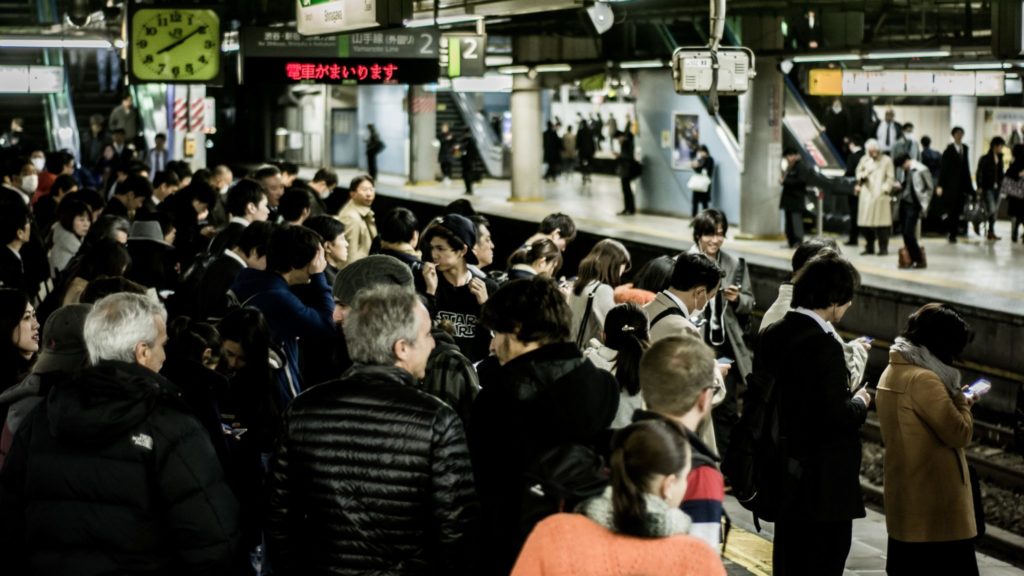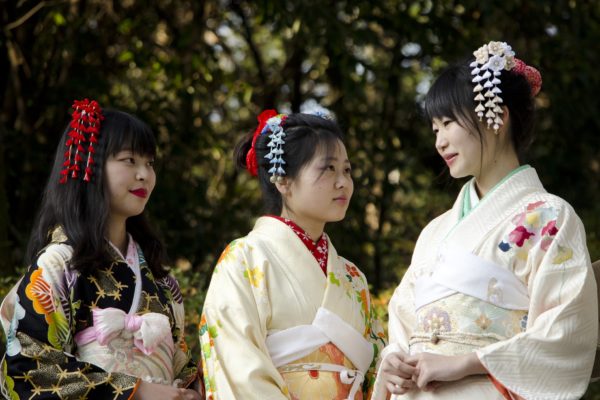As a tourist in Japan, it is important that you are familiar with the country’s acceptable behaviours and manners so as not to offend the locals. While certain acts and conduct may be fine where you are from, they may be considered rude and boorish on this side of the world. Below are examples of common offenses that many foreigners in Japan commit:
Tipping
Unlike many Western countries, Japan sees tipping as a strange custom. Even if you are very much happy with the services that you receive from a Japanese restaurant or hotel worker, and feel that you should tip them to show your appreciation, you should not give them any more than the amount indicated on the receipt.
If you leave them a tip and they realize that you paid them extra, they will run after you to hand you your change, or report to their employer about it. The Japanese believe that paying them more through tips is like you saying that you think they are not paid enough wages.
Cutting in line
Japan is one of the most populated countries in the world, but the Japanese do not have a major problem when it comes to falling in line at bus and train stops, concerts and shows, and ramen and sushi restaurants, to patiently wait for their turns.
In many train stations in Tokyo, for instance, the dense crowds of people waiting on the platforms can be overwhelming during rush hour. Finding where the backs of the lines are can be confusing, but they seem to be able to figure it out. And, once a train arrives, the commuters know that they should give way to people getting off the train first before they can get in.

As a tourist, learn to queue just like everybody else. Do not cut in line, even if you are in a hurry, as that is just rude and impolite.
Talking on the phone on the train or bus
The Japanese take privacy and personal space very seriously. If you are in public, such as on a train or a bus, you have to keep to yourself and not disturb the people around you. Refrain from talking on your phone. This rule is posted on signs and heard on public service announcements in many train lines all over the country.
If you are expecting an extremely important call, go someplace where there is no one trying to get some sleep or reading done. In Shinkansen lines, people who really have to talk on their phones usually use the areas by the train doors or toilets, which are at least far enough from the passenger seats and separated by doors that can muffle the sounds.
Also, avoid talking with your companions in loud voices while on a train or a bus. Okay, it is your first time in Japan and you are so excited about going to all of these attractions, but the people around you do not really care. They do not want to hear you gushing and raving. Save your chats for once you get off the public transportation.
Sticking your chopsticks into a bowl of food
The Japanese have some of the best tasting dishes in the world, and a trip to Japan is not complete without trying at least a couple of their mouth watering sushi, ramen, yakitori, and others. To have the best experience, it is essential that you learn some basic chopsticks etiquette to ensure that you are not offending the Japanese chef, servers, and the other local customers at the izakaya you are dining at.
Many foreigners that visit Japan are not familiar with chopsticks etiquette, and they frequently commit mistakes that, to a Japanese person, are considered bad behaviour. One of the most common is sticking their chopsticks vertically into a bowl, particularly a bowl of rice. Doing so is considered bad luck because it is similar to a custom relating to death, where a bowl of rice with two upright chopsticks stuck in the centre is prepared and left at funerals.
Not taking your shoes off when you enter someone’s home
The Japanese take their shoes off before entering their homes. This practice has been around for many centuries now, and it is one of those things that you also have to do as a guest to show respect to the homeowners and the Japanese culture.
Japanese houses have this area known as genkan, which is found right inside the entrance door, where you take your shoes off and leave them at. Then, there are usually slippers available to wear while you are inside the home, walking on hardwood, marble, or tiled floors. These slippers, however, have to be taken off too when stepping on carpeted flooring or tatami mats.
Leaving your trash anywhere
The Japanese follow strict trash and garbage rules and regulations. As a tourist, you are expected to abide by these and help maintain the cleanliness everywhere.
Remember to always have small plastic bags with you every time you are outside, so that you can keep all of the garbage that you collect throughout the day in there. Do not leave used Shinkansen tickets, sandwich wrappers, or empty mineral water bottles on a park bench or a temple step. Segregate your trash into biodegradable, non-biodegradable, and recyclable, and throw them into the appropriate bins.
A lot of tourists have observed how garbage cans are so difficult to find in Japan, but you should be able to come across some at train stations, near vending machines, and outside convenience stores.
Tardiness
The Japanese is known for their punctuality and discipline. The rail network across the country is probably the best in the world, and boasts of an average delay of only less than a minute. Events and shows very rarely start later than their advertised times. Museums, restaurants, shops, and other establishments also follow the same conduct. So, while in Japan, always be on time, if you do not want to miss your train, bus, tour group, or other activities you have included in your itinerary.



